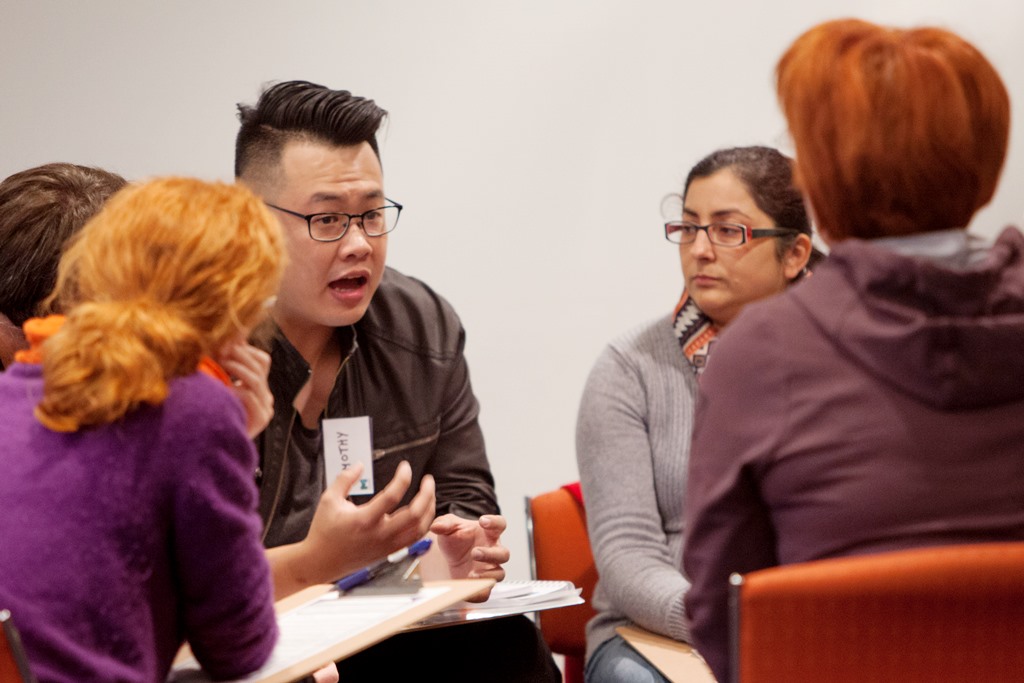Deliberative engagement
what is deliberative democracy?
Deliberative democracy (or deliberative engagement) is all about placing people closer to the affairs of government - putting them at the centre of the issue or decision that affects them.
Deliberation done right is powerful. It can lead to new solutions for the most challenging problems we face (sometimes known as 'wicked' problems), improve policy outcomes and engender trust between citizens and government.
These processes build shared responsibility, meaning that outcomes are more likely to 'stick'. They are less adversarial than many traditional engagement approaches, and can result in number of long-term, transformative benefits for both organisations and participants.
MOSAICLAB HELPS INFORMED, ENGAGED CITIZENS TO HAVE IN-DEPTH DISCUSSIONS, IDENTIFY NEW SOLUTIONS & CONTRIBUTE TO DECISIONS THAT STICK.
DELIBERATION IS OUR SPECIALTY
Our team is made up of specialist deliberative engagement facilitators. MosaicLab’s co-founders originally came together through a shared passion for deliberative engagement.
We’ve facilitated 40 deliberative processes since 2014. Our facilitators bring with them a wealth of experience in designing and delivering deliberative projects. Deliberative processes we run include:
citizens' juries
community panels
participatory budgeting (where deliberative elements are included)
other forms of deliberative panels, assemblies and forums.
More information on the importance of facilitation in (and the different type of facilitation skills and experience required for) a deliberative process can be found here on the newDemocracy Foundation website.
WE DELIVER ONLINE & HYBRID PROCESSES
We deliver deliberative processes face-to-face and via online methods. We also specialise in the design and facilitation of hybrid processes (a blend of both tailored to meet project needs).
We’ll support you to navigate and address the challenges and opportunities associated with online and hybrid delivery, and develop a process that:
meets your project budget and objectives,
is tailored around the problem you are addressing,
effectively engages participants in a meaningful way that meets or exceeds the experiential outcomes of an in-person process
we seek to lead where deliberation is going
We are committed to:
actively supporting the conversations about big public dilemmas that need to happen
inspiring and transforming the way decisions are made
enhancing deliberative practice through innovation, research and continuous improvement
contributing to international conversations that support the advancement of deliberative democracy around the world
advocating for quality engagement to be embedded in decisions that impact people
generously sharing information, knowledge and learning and helping to build capacity in others.
WHEN TO DELIBERATE (AND WHEN NOT TO)
Quality engagement is tailored engagement - and your approach or process needs to be fit-for-purpose. This means assessing where the participants are at, the history or context of the issue, and the aims of engagement.
We find that deliberative principles can be integrated into nearly every process that we deliver. However, bigger (full) deliberative processes (such as a citizens’ jury) should only be used when the conditions are right.
ARE YOU DELIBERATION READY?
Take the MosaicLab deliberation assessment test.
Start now
Prepare to deliberate - explore our training options.
Find out more
CASE STUDIES
Discover examples of MosaicLab's deliberative engagement work and processes over on our case studies page.







